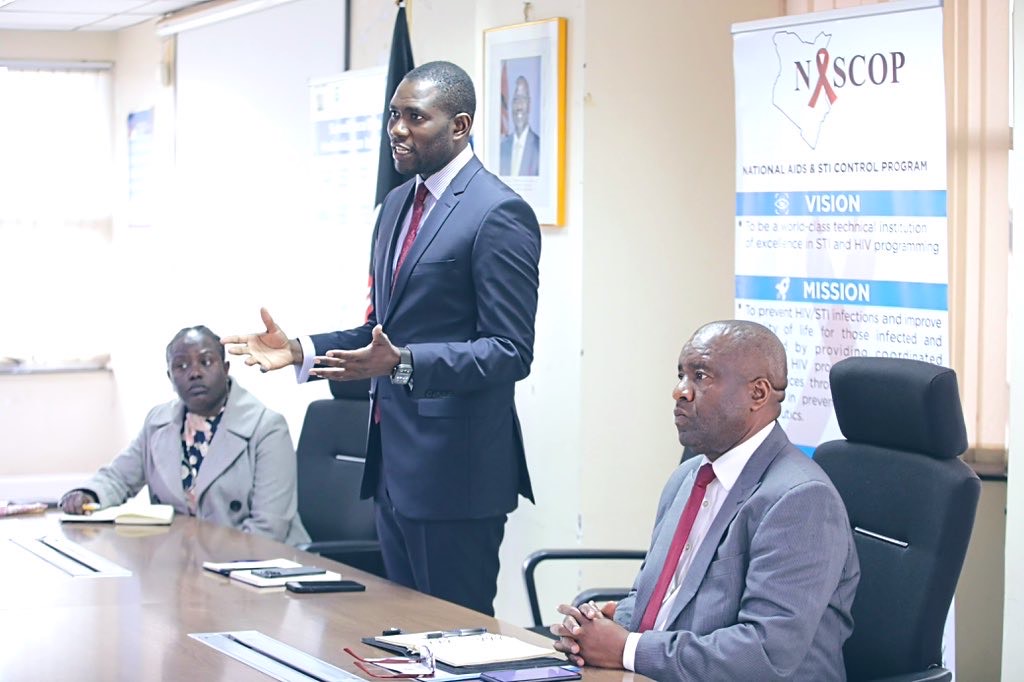On April 30, 2025, the Principal Secretary for the State Department for Medical Services, Dr. Ouma Oluga, convened a high-level meeting with officials from the Directorate of Curative Services to deliberate on strategies aimed at enhancing the efficiency of healthcare operations and rebuilding public trust in the health system.
The meeting, held in Nairobi, served as a critical platform for assessing the current challenges facing the Directorate and identifying practical solutions that align with national health objectives. With healthcare being a key pillar of the government’s development agenda, the discussions focused on reform-oriented strategies that would ultimately improve service delivery across public health facilities.
Central to the meeting was the issue of operational efficiency. Dr. Oluga emphasized the need to eliminate bureaucratic hurdles and streamline internal processes to ensure that services are delivered promptly and professionally. He pointed out that the current system faces gaps that impede timely decision-making and resource allocation, and called for a more agile and responsive approach in handling medical service provision.
A recurring theme in the discussions was the importance of accountability within the Directorate. Dr. Oluga called on senior officials to take greater ownership of their mandates and lead by example in enforcing performance standards. He advocated for regular audits, performance appraisals, and data-driven decision-making as tools to promote transparency and ensure resources are used effectively.
The meeting also explored ways to reinforce coordination between the Directorate and other departments within the Ministry of Health. Enhanced interdepartmental collaboration was highlighted as a critical enabler of integrated service delivery. Dr. Oluga stressed the value of synergy among all actors in the health ecosystem, including county governments, to avoid duplication of efforts and improve patient outcomes.
As part of the broader health sector reforms, the Principal Secretary emphasized the need to invest in both human and infrastructural resources. He noted that without a well-supported and motivated workforce, achieving lasting change would be difficult. Strategies such as continuous professional development, fair deployment practices, and adequate remuneration were proposed to improve staff morale and retention, especially in underserved regions.
Improving the quality of care was another key area of focus. Dr. Oluga urged the Directorate to prioritize patient-centered approaches and uphold clinical standards across all service levels. He challenged the team to develop clear quality assurance mechanisms and patient feedback systems to monitor satisfaction and address grievances effectively.
In terms of technology and innovation, the meeting acknowledged the critical role of digital health systems in enhancing efficiency. Dr. Oluga encouraged the adoption of health information systems that facilitate real-time data sharing, monitoring of medical supplies, and automation of patient records. Such systems, he said, would reduce paperwork, improve diagnostics, and support evidence-based policy-making.
This consultative engagement marked a proactive step in the government’s broader agenda to transform the healthcare sector. By fostering open dialogue and collective accountability, the Ministry aims to create a more transparent, responsive, and patient-focused system.
The Principal Secretary reaffirmed his department’s commitment to ongoing dialogue with stakeholders as a cornerstone of the reform process. He concluded the meeting with a call to action, urging all officials to play their part in delivering on the promise of quality healthcare for all Kenyans.

